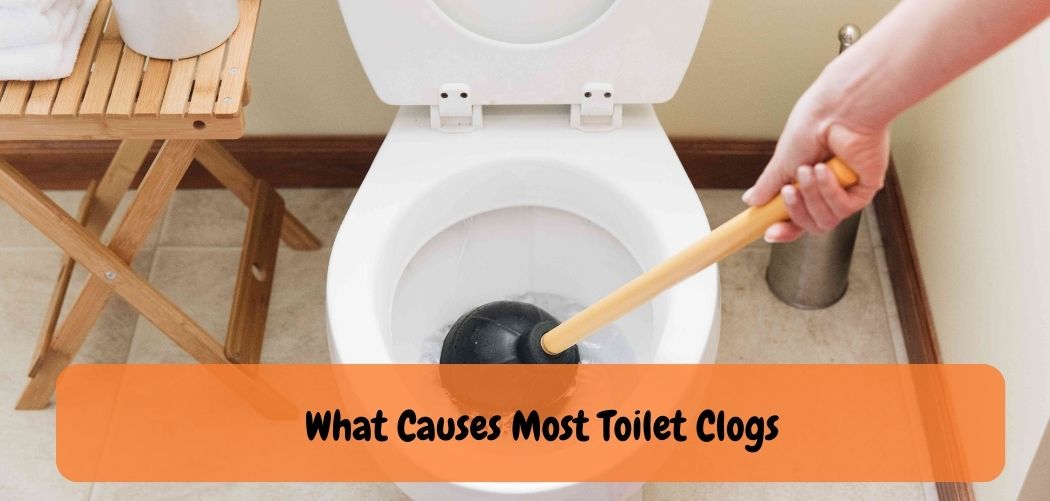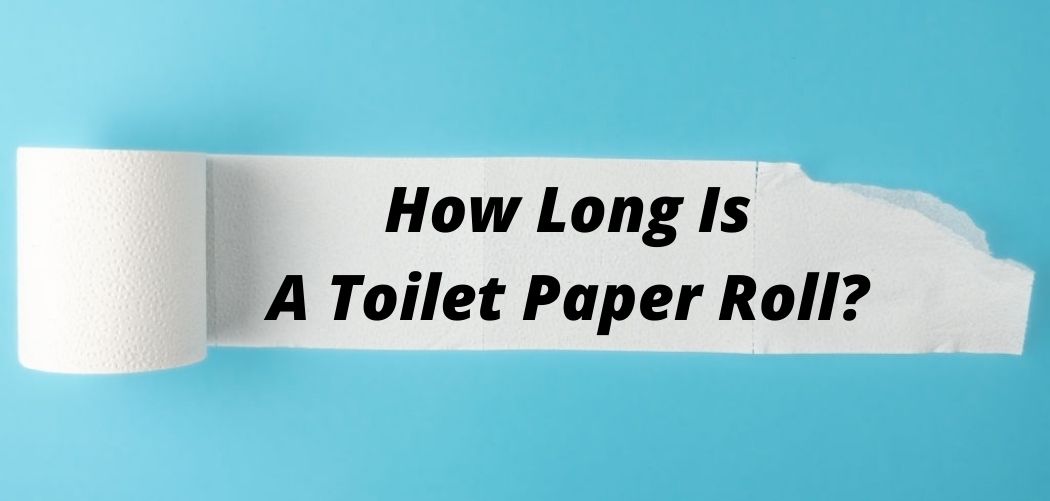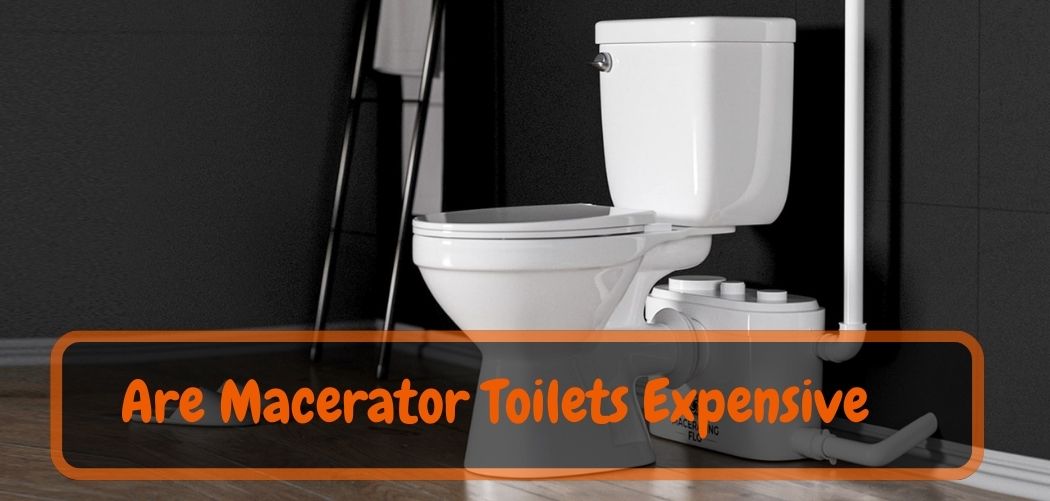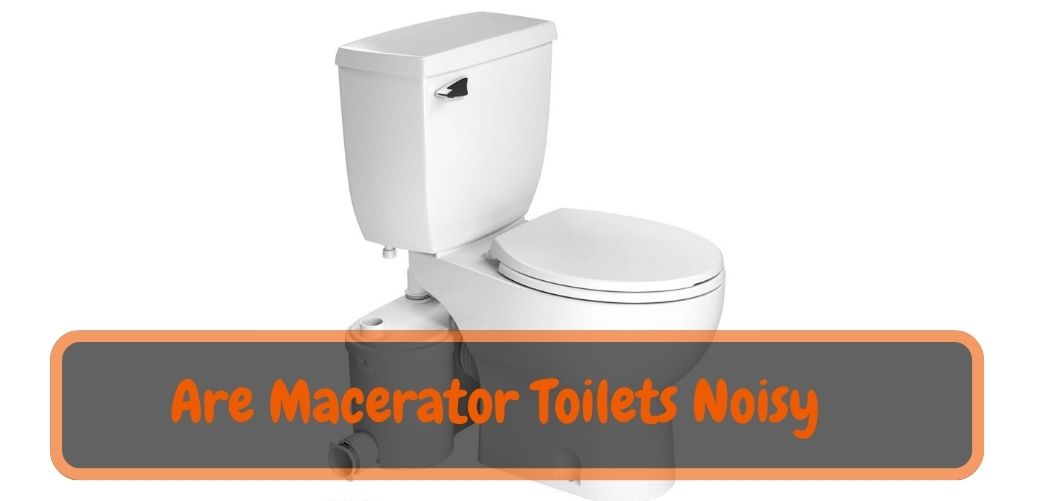Toilet clogs can be a frustrating and unpleasant experience for anyone. They can lead to water damage, bad odors, and inconvenience.
But what exactly causes most toilet clogs? While there can be various reasons, some common causes are flushing inappropriate items, buildup of debris and waste in the pipes, and insufficient water flow.
Understanding these causes and taking preventative measures can help reduce the likelihood of a toilet clog, and save you the hassle and expense of dealing with one.
In this article, we will explore in more detail the most common causes of toilet clogs, and what you can do to prevent them.
The Causes Most Toilet Clogs?
Toilet clogs are a common household problem that can cause a lot of inconvenience, mess, and even damage to your plumbing system. Understanding the most common causes of toilet clogs can help you prevent them and avoid the hassle of dealing with a blocked toilet. In this guide, we will explore in detail what causes most toilet clogs and how to prevent them.
1. Flushing Inappropriate Items
One of the most common causes of toilet clogs is flushing inappropriate items down the toilet. Items such as wipes, feminine hygiene products, cotton swabs, dental floss, paper towels, and even some types of toilet paper can cause clogs. These items do not break down easily in water and can get caught in the pipes, leading to a blockage. To prevent toilet clogs, it’s essential to only flush toilet paper and human waste down the toilet. Avoid flushing any other items, and dispose of them in the trash.
2. Buildup of Debris and Waste in the Pipes
Over time, waste and debris can accumulate in the pipes, leading to a buildup that can cause a blockage. This is particularly common in older plumbing systems or pipes that have not been cleane or maintained regularly. The buildup can include things like hair, soap scum, grease, and other materials that don’t dissolve easily in water. To prevent this type of blockage, it’s essential to maintain your plumbing system by cleaning your toilet and drains regularly. You can use a plunger or an auger to remove any blockages and clear out the debris.
3. Insufficient Water Flow
Insufficient water flow can also cause toilet clogs. When there is not enoug water flowing through the pipes, waste and debris can get stuck, leading to a bloc This is often cause low water pressure or a fault flush valve. To prevent this type of blockage, ensure that your toilet is getting sufficient water flow by adjusting the water valve or cleaning the inlet holes. If the water pressure is consistently low, you may need to call a plumber to fix the issue.
Also Read: How to Unclog an Upflush Toilet
Why are My Toilets Clogging More Often?
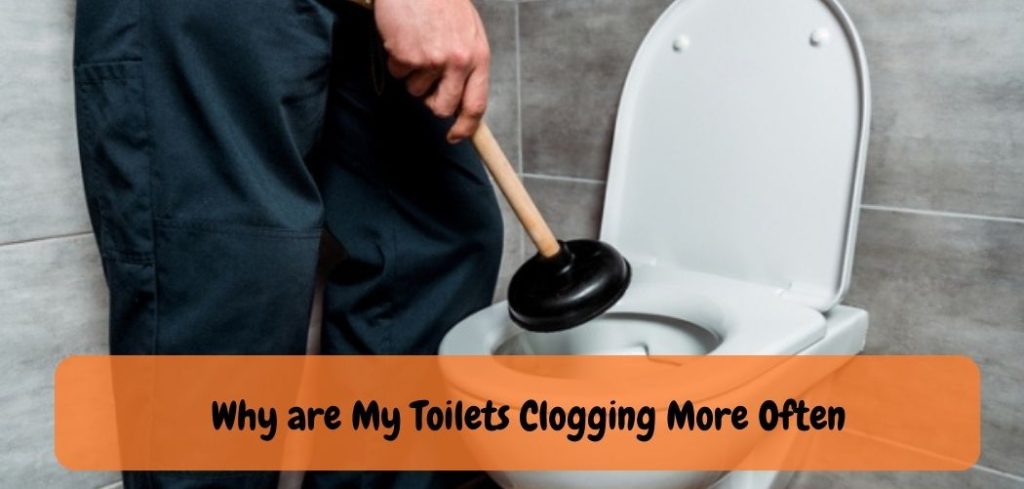
If you’re noticing that your toilets are clogging more often than normal, it could be due to a variety of reasons. One common cause is tree root intrusion as small roots can work their way into the sewer lines and cause blockages. Unfortunately, this is not something that you can fix yourself – you’ll need to have a professional come out and take care of it.
It’s also possible that there could be an issue with the plumbing itself such as improper installation or worn-out pipes which can lead to frequent clogs. Additionally, foreign objects like toys or hygiene products being flushe down the toilet may become caught in drains and create blockages over time.
To make sure these items don’t end up in your toilet, keep a garbage bin handy near each one so people know where they should discard things instead of flushing them away.
Finally, if none of these seem to be causing the problem then it might just be general wear-and-tear on your plumbing system; older homes are especially prone to clogs since their pipes may not have been replace in quite some time.
In any cas, having regular maintenan done a plumber will help preve major issues from occurring going forwar so it’s always worth invest in when necessar!
How Do You Fix a Frequently Clogged Toilet?
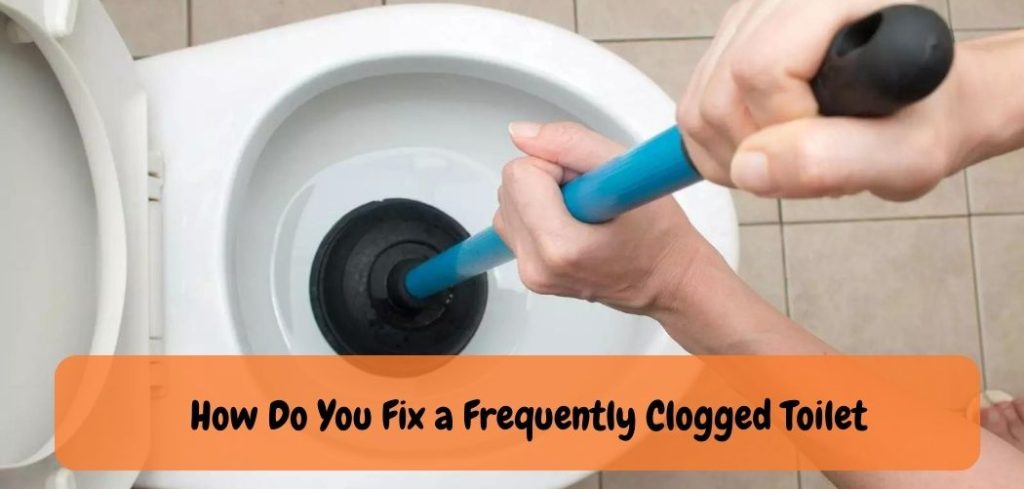
A clogged toilet is a common problem that happens to many homeowners and renters alike. It can be an annoying issue, but fortunately there are easy steps you can take to fix the problem. First and foremost, it’s important to identify what is causing your toilet to become clogged in the first place.
Common causes of clogs include too much toilet paper or other objects being flushe down the drain. Once you have identified the cause of your frequently clogged toilet, then you can begin fixing it. If it’s cause too much toilet paper or debris in the drain pipe, you may need to use a plunger or auger to break up any blockages in order for water flow through again.
You should also check if there’s any damage or obstruction on the inside of your pipes that could be impeding drainage; if so, call a professional plumber as soon as possible—this type of repair often requires specialized tools and equipment such as sewer cameras and hydro-jetting machines which most homeowners do not possess.
Lastly, make sure that all fixture connecte with your plumbing system (such as faucets) are working properly so that waste water flows out quickl instea of accumulating into drains and toilets where items can get stuck more easily over time due to build from soap residue etc., causing frequent clogs dow the roa!
Why Does My Toilet Get Clogged Every Time Someone Poops?

Clogged toilets are a common problem that many people have to deal with on occasion. While clogs can caused a variety of things, one of the most frequent reasons for toilet blockages is when someone poops. This happens because solid waste material such as feces can become stuck in the pipes and create an obstruction that blocks water from flowing freely through them.
In some cases, too much paper or other materials may also contribute to the buildup of blockages in your plumbing system. If this is happening regularly in your home, it’s important to take steps to address it before further damage occurs. The first step should be to inspect all drains for anything that could be blocking them, including items such as hair, food scraps or other debris.
If nothing is foun there then you should check if any tree roots have infiltrated your underground piping which could also lead to clogs forming over time. Additionally, consider installi a high qualit plunger or auger tool so you can clear out minor obstructions without having to call in professional help every time something gets stuck!
5 Reasons Your Toilet Keeps Clogging
Conclusion
In conclusion, most toilet clogs are cause by flushing inappropriate items down the toilet, buildup of debris and waste in the pipes, and insufficient water flow.
To prevent toilet clogs, it’s important to only flush toilet paper and human waste down the toilet, avoid flushing items such as wipes, feminine products, and paper towels, and ensure sufficient water flow by using a plunger or an auger to remove any blockages.
Additionally, regular maintenance such as cleaning the toilet and drains, can help keep your toilet functioning properly. By taking these simple preventative measures, you can avoid the inconvenience and expense of dealing with a toilet clog, and ensure that your toilet continues to work efficiently.


